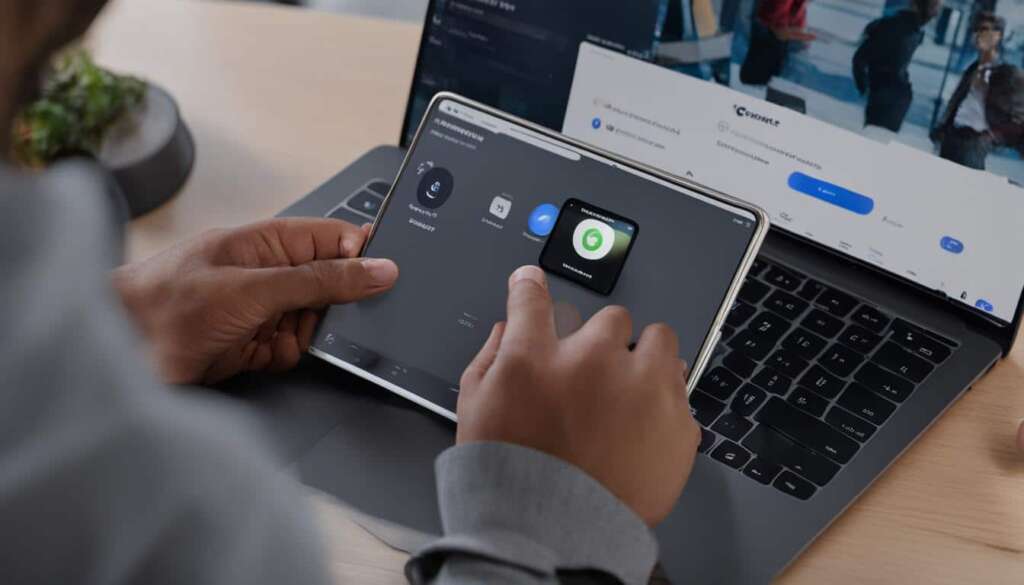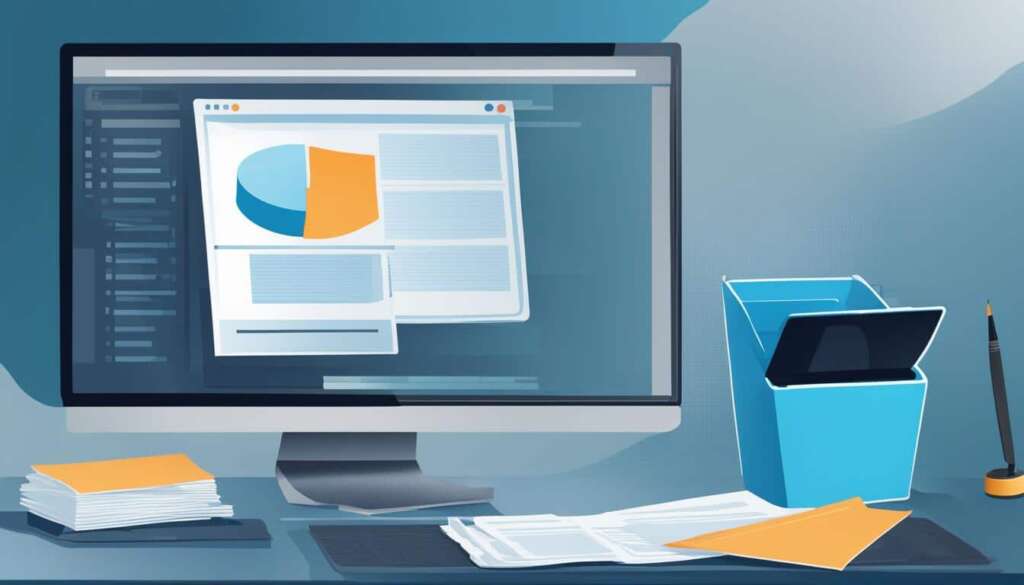Table of Contents
Is your PC feeling sluggish and slow? Don’t worry, there are ways to give it a much-needed performance boost. Whether you’re using Windows 10 or the latest Windows 11, optimizing your PC’s speed is within reach. By implementing a few simple tips and making adjustments to your system settings, you can significantly improve your computer’s performance and efficiency. Let’s dive into effective methods to make your PC run faster.
One of the first steps to boost your PC’s performance is to adjust your power settings. By changing your power plan from “Power saver” to “High performance” or “Balanced,” you can instantly enhance your PC’s speed without sacrificing too much power consumption. Additionally, disabling unnecessary programs that run on startup can free up valuable system resources, allowing your PC to run smoother and faster.
Cleaning up your PC is another essential method to improve its speed. Regain valuable storage space by performing regular disk cleanup and removing unnecessary files. Use the built-in Disk Cleanup utility to get rid of temporary files, system files, and other clutter that could be slowing down your computer. Uninstalling unused programs and deleting old files can also optimize your PC’s storage and contribute to enhanced performance.
If you’re looking for a significant boost in speed, consider upgrading your hardware. Adding more RAM can improve your PC’s multitasking capabilities and reduce lag. Another game-changing upgrade is replacing your traditional hard drive with a solid-state drive (SSD), which offers faster data access and quicker boot times. While hardware upgrades may require a larger investment, the improved speed and performance make it worthwhile in the long run.
So, don’t let a slow PC hold you back. Take advantage of these tips to supercharge your computer’s speed and performance. With a few adjustments and upgrades, you’ll be amazed at how much faster your PC can run.
Adjust Power Settings
Changing your power settings can have a direct impact on your PC’s performance. By switching from the “Power saver” plan to the “High performance” or “Balanced” plan, you can give your PC an instant performance boost. This change will optimize your PC’s performance without compromising too much on power consumption. Additionally, disabling programs that run on startup can help free up system resources and improve overall speed.
When your PC operates in the “Power saver” mode, it reduces power usage but sacrifices performance. On the other hand, the “High performance” mode prioritizes speed and responsiveness, maximizing your PC’s performance at the cost of increased power consumption. For a balanced approach, the “Balanced” mode provides optimized power settings, balancing performance and power efficiency.
To change your power settings:
- Open the Start menu and search for “Power Options”.
- Select the “Power Options” from the search results.
- Choose the desired power plan from the available options, such as “High performance” or “Balanced”.
- Click on “Change plan settings” next to the selected power plan.
- Adjust the sleep and display settings according to your preferences and click on “Save changes”.
Disabling unnecessary startup programs is another effective way to optimize your power settings. Many applications automatically run in the background when you start your PC, consuming valuable system resources. By disabling these programs, you can free up resources and improve your PC’s speed. To disable startup programs:
- Press Ctrl + Shift + Esc to open the Task Manager.
- Go to the “Startup” tab.
- Right-click on the programs you want to disable and select “Disable”.
By adjusting your power settings and disabling startup programs, you can optimize your PC’s performance and increase its speed without investing in costly hardware upgrades.
“Power settings can have a direct impact on your PC’s performance. Switching to the ‘High performance’ or ‘Balanced’ plan can give your PC an instant boost.”
Clean Up Your PC
Performing regular disk cleanup and removing unnecessary files can help improve your PC’s performance. Use the built-in Disk Cleanup utility to get rid of temporary files, system files, and other clutter that may be taking up valuable storage space.
Uninstalling unused programs and deleting old files can also help optimize your PC’s storage and make it run faster. By removing programs and files that you no longer need, you can free up disk space and reduce the strain on your computer’s resources.
When running disk cleanup, be sure to select the specific categories of files you want to remove. These categories may include temporary files, downloaded program files, and recycle bin contents. By customizing the cleanup process, you can target specific areas that are known to accumulate unnecessary files.
Remember to exercise caution when deleting files and programs. Make sure you are removing items that are truly unnecessary, as deleting essential system files or programs could cause issues with your PC’s functionality.
In addition to disk cleanup, consider organizing your files and folders in a logical manner. This can make it easier to locate specific documents or files and prevent the accumulation of clutter in your storage drive.
Uninstalling Unused Programs
Uninstalling unused programs is another effective way to optimize your PC’s storage and improve performance. Over time, you may accumulate programs that you no longer use or need.
To uninstall programs, you can use the built-in “Add or Remove Programs” feature in Windows. Simply navigate to the Control Panel, select “Programs,” and then choose “Uninstall a program.”
Review the list of installed programs and identify those that you no longer require. Select the program and click “Uninstall” to remove it from your computer.
Deleting Old Files
Deleting old files that you no longer need can also help free up storage space and optimize your PC’s performance. Take the time to review your files and folders, and identify any outdated or unnecessary documents, photos, or videos.
Before deleting files, make sure to create a backup or transfer important files to an external storage device. This will ensure that you don’t accidentally delete any valuable data.
Once you’ve identified the files you want to delete, simply right-click on them and select “Delete” or drag them to the recycle bin.
Upgrade Hardware
Upgrading your hardware can make a significant difference in improving your PC’s speed and overall performance. One effective way to achieve this is by adding more RAM (Random Access Memory). By increasing your RAM capacity, your computer will have more resources to handle multiple tasks simultaneously, resulting in reduced lag and faster response times.
Another hardware upgrade that can greatly improve computer speed is replacing your traditional hard drive with a solid-state drive (SSD). Unlike traditional hard drives, SSDs have no moving parts, allowing them to access data faster and boot up your system in seconds. This can lead to significant reductions in loading times for applications, files, and the operating system itself.
While hardware upgrades might require a more substantial investment compared to other methods, they offer long-term benefits and improved performance. In addition to adding more RAM and upgrading to an SSD, other hardware upgrades to consider include upgrading your processor or graphics card to handle more demanding tasks. By investing in these hardware upgrades, you can enjoy a faster and smoother computing experience.
FAQ
How can I make my PC run faster?
There are several methods you can try to boost your PC’s performance. You can adjust your power settings, perform regular disk cleanup, remove unnecessary files, and consider upgrading your hardware.
How do I adjust power settings to improve my PC’s performance?
To adjust power settings, go to the Control Panel and select “Power Options.” From there, you can switch from the “Power saver” plan to the “High performance” or “Balanced” plan. This change will optimize your PC’s performance without consuming too much power.
How can disk cleanup help improve my PC’s performance?
Disk cleanup allows you to remove temporary files, system files, and other clutter that may be occupying valuable storage space. By getting rid of these unnecessary files, you can free up system resources and enhance your PC’s speed and efficiency.
What should I do to optimize my PC’s storage and make it run faster?
To optimize your PC’s storage, start by uninstalling any unused programs and deleting old files and folders. Additionally, consider upgrading from a traditional hard drive to a solid-state drive (SSD), which offers faster data access and boot times.
Will adding more RAM improve my PC’s performance?
Yes, adding more RAM can significantly improve your PC’s performance. With additional RAM, your computer can handle more tasks simultaneously, reducing lag and increasing overall speed.
Is it worth replacing my hard drive with an SSD?
Yes, replacing your traditional hard drive with an SSD can greatly benefit your PC’s performance. An SSD provides faster data access and quicker boot times, resulting in a significant boost in speed and overall performance.













